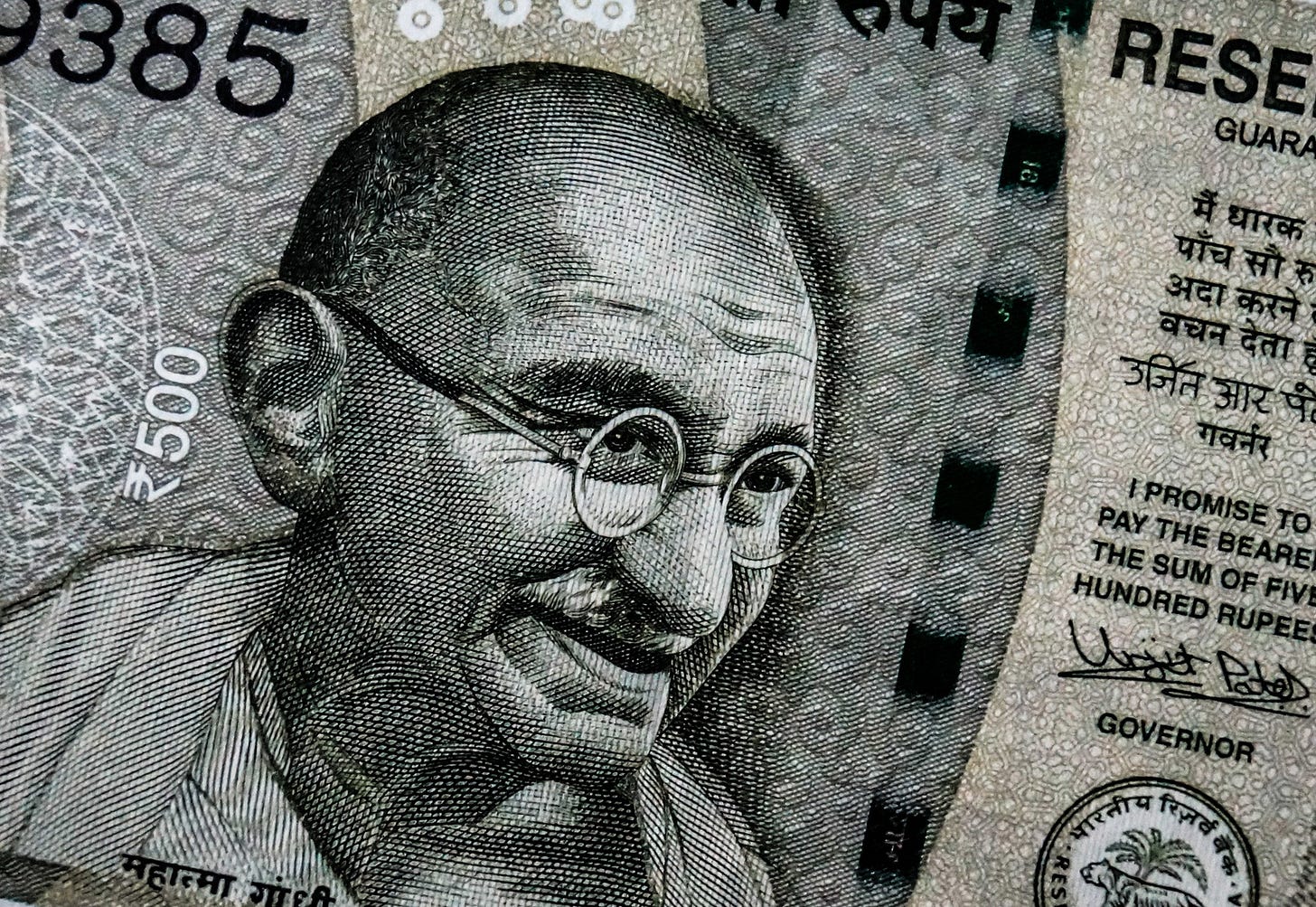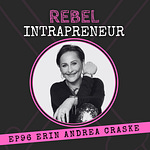Rebel Intrapreneurs use the Strategyzer Business Model Canvas FigJam template to turn possibilities into plans. Learn about the business model canvas FigJam template here and Try FigJam for free.
In this episode, I define rebel intrapreneur starting with 1) defining a rebel; then 2) defining an intrapreneur; and finally 3) mashing these two words together to define rebel intrapreneur.
I like the term rebel intrapreneur. It expresses two parts of my personality that, on the surface, look to be at odds, but can go together nicely if executed properly. It is also an oxymoron, which as a writer I appreciate. Rebel Intrapreneur is like, "small crowd" or "thunderous silence" or "open secret" or (as the joke goes) “military intelligence.”
That joke is "awfully good."
See what I did there?
After all how can a rebel, who flaunts convention, be in the same phrase as intrapreneur, who embraces convention?
How does a democrat sometimes vote republican?
Why do people cross train?
Why do fools fall in love?
The phrase is a dichotomy.
Dichotomy of the rebel intrapreneur
Sometimes we should be a rebel and push past conventions on our organization. But if we take it too far, we can make matters worse. Sometimes we need to follow convention in our organizations. When your boss at Apple says, "That's how we do design around here," you might not want to say, "Well that's stupid." The way we do things can also be an extremely good way to do things.
That's the dichotomy.
Rebel Intrapreneur.
What is a rebel intrapreneur, you ask?
Let's define it.
And to define it, let's break it apart and start with rebel.
What is a rebel?
In the dictionary the definition of rebel looks like this:
A noun: A person who refuses allegiances to, resists in arms against the government or ruler of his or her country; A person who resists any authority, control, or tradition.
An adjective: Rebellious or defiant.
A verb: To reject, resist, or rise in arms against one's government or ruler; To resist or rise against some authority, control, or tradition.
The definition of a rebel seems negative. It's about resisting on one end of the spectrum and violence on the other. The question then is, "Are there positive rebels?"
Let's see.
Gandhi: be the change you want to be in the world.
Muhammad Ali: Float like a butterfly. Sting like a bee.
Martin Luther King, Jr: Forgiveness is not an occasional act. It is a permanent attitude.
James Dean: The movie is called Rebel Without a Cause
Justin Bieber: I'm crazy. I'm nuts. Just the way my brain works. I'm not normal. I think differently.
Rebel Wilson: Her name is Rebel.
Great! We agree there are positive rebels. Well, not positive for the status quo. That's the dichotomy.
As I thought more about the phrase rebel intrapreneur and the word rebel and the overall message it would send, I started to look at specific phrases and ideas in the definition of rebel that speak to what I am trying to define:
The phrase in the definition of rebel, "a person who refuses allegiance to......" reminds me of a main idea in Reid Hoffman's book, The Alliance. In it, Hoffman talks about not being loyal to the company but being loyal to the mission or cause; to go on a journey to tackle some big initiative for a while. Together. The boss and employee form an Alliance to go change something together. And after they have done that....re-evaluate whether to stay with the company and tackle the next cause OR leave now that the alliance to advance the mission is over. No harm no foul.
That's positive.
So in this case the allegiance is not to the company but to the boss and the mission. I refuse allegiance to the company, but embrace allegiance to the boss and the cause.
The next part of the definition of rebel that I like is, "a person who resists a tradition....."
A rebel doesn't have to resist the boss or the company or a government. A rebel can resist a tradition or a way of doing things. "I don't like the way we do this, so I am going to do it another way, or otherwise work to change the way we all do it."
In that spirit, resisting tradition is an act of improving on a current way of doing things.
That's positive.
A third part of the definition that leaps out at me is, "rise in arms."
Arms refers to weapons, as in weapons of war. We don't go to war at work, despite the metaphors our VPs of sales use every week. What is our weapon at work?
Persuasion.
Presentations.
The business case.
Communication skills.
The well thought out plan.
The forecast.
The business model canvas.
The value proposition canvas.
Initiative.
Leadership.
The company values.
Politics.
Helping others.
Understanding what the CEO wants.
Put all those together, and there is something positive about being a rebel at work.
If I were to summarize each of those parts of the definition of rebel into one simple idea, it is this:
Rebels resist the system.
Now that we have deconstructed the definition of rebel and built it back up into a positive message, let's look at the definition of intrapreneur. Because, remember, I am going to put rebel and intrapreneur together and create a single definition of rebel intrapreneur, so we all know what to get on board with.
What is an Intrapreneur?
I did not expect intrapreneur to be in the dictionary. It is not a real word, like “irregardless” or “anyways” or “impactful.” But there it is.
Wait is dictionary.com a dictionary?
Hmmm.
The definition of intrapreneur from dictionary.com:
"an employee of a large corporation who is given freedom and financial support to create new products, services, systems, etc., and does not have to follow the corporation's usual routines or protocols."
OK. I like much of that definition, except that maybe the phrase, "does not have to following the corporation's usual routines and protocols" takes it a bit too far. That definition is a good start.
Then I did a simple Google search and found this definition at the top: "A manager within a company who promotes innovative product development and marketing."
I am not a fan of limiting the definition of intrapreneur to managers only or to only promoting product innovation and marketing.
Investopedia has a definition:
"An employee who is tasked with developing an innovative idea or project within a company. The intrapreneur may not face the outsized risks or reap the outsized rewards of an entrepreneur. However, the intrapreneur has access to the resources and capabilities of an established company.
I like this definition, especially to part about the risk/reward differences between the entrepreneur and the intrapreneur.
Let's go to old faithful, Wikipedia:
"Intrapreneurship is the act of behaving like an entrepreneur while working within a large organization. Intrapreneurship is known as the practice of a corporate management style that integrates risk taking and innovation approaches, as well as the reward and motivational techniques, that are more traditionally thought is as being the province of entrepreneurship.”
The crowd has improved the definition. I like most of that.
Now that we have three definitions of intrapreneur, let's break it down into a few parts that stand out.
One part that stands out is, "a manager within a company."
An intrapreneur is not a manager. The assumption that an intrapreneur must be a manager goes against the ethos of intrapreneurship, which is leadership. Stepping up to lead and otherwise not waiting to be told, "Now that you've been promoted by us to manager, you can go be an intrapreneur."
No.
Intrapreneurs can be anywhere in the company, furthering any part of the company to improve it, create more value, change it, or otherwise take the initiative to enrich the lives of customers. It is congruent with my favorite phrase of leadership (from Kouzes and Posner) that "leadership is everyone's business." In this same spirit. Intrapreneurship is an act of leadership. And waiting to be told that one can now be an intrapreneur is by definition not intrapreneurship.
A second phrase that stands out is, "given freedom and financial support." Although I don't like the definition narrowing the role of intrapreneur to managers and the idea that until the title of manager is "given" to someone. I do believe that an intrapreneur needs to be "given" freedom and financial support. Though, even that troubles me because "given" implies one cannot take initiative and act as if they have freedom and financial support by making a case for it. So the word "given" will not make it into our eventual definition of rebel intrapreneur.
A third phrase I want to call out is the intrapreneurs, "...create new products, services, systems..." Intrapreneurs do not just create new products. Intrapreneurs can improve anything in a company to help further the mission. It could be products. It could be in the way we service customers. It would be the way we send out invoices. It could be the way we on-board new employees. Any improvement to product, services, systems, processes, playbooks, motions, business models (especially business models), customer interactions, employee engagement, teamwork, and especially anything that creates an environment in which others that follow can repeat the improvement themselves over and over.
Intrapreneurs take initiative to improve some aspect of the organization such that it furthers the purpose.
Now that we have deconstructed the definition of intrapreneur, let's mash these two words together into a single definition of rebel intrapreneur.
What is a rebel intrapreneur?
A rebel resists the system from the outside.
An intrapreneur furthers the system from the inside.
A rebel intrapreneur both resists and furthers the system from inside.
Two parts positive: 1) furthers the system; 2) from the inside.
One part negative: resists the system
Healthy tension.
Based on this healthy tension between rebel and intrapreneur, my definition of a rebel intrapreneur is:
"an employee who takes initiative to further the purpose of the organization by simultaneously challenging and working within the system."
It's not perfect, but it's a good start. This definition implies many things without necessary prescribing solutions. For example, the definition is two parts positive and one part negative, demonstrating a healthy tension.
This definition also recognizes group think and address it with a challenging ethos. This definition also addresses necessary required leadership to be a rebel intrapreneur. It also address, perhaps the most important part of the definition, and that is to further the purpose of the organization. Intrapreneurs get on board with the company purpose early and quickly and stay focused on that in all of their initiatives.
Entrepreneurs need intrapreneurs to further their vision.
Entrepreneurs paint a clear picture of the future. Rebel intrapreneurs are first to see that vision and take action towards pursuing it, even against growing internal resistance, road blocks, and group think.
There you have it. My definition of a rebel intrapreneur. Two parts positive and one part negative. A healthy tension. And always in pursuit of a positive purpose.
Sponsor:
Today’s episode is brought to you by Figma. Two important tools of the Rebel Intrapreneur are the business model canvas and the value proposition canvas. Figma has templates for both. I used the value proposition canvas template to design the listener profile and value map for this show. You can do it, too. Try Figma for free, and get your innovation projects off the ground fast.
More about Bill:
Rebel Intrapreneur podcast website
Bill’s book: The Art of Agile Marketing: A Practical Roadmap for Implementing Kanban and Scrum in Jira and Confluence
Get the show on:
















